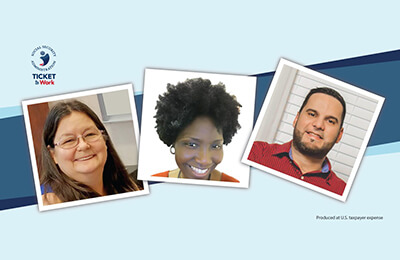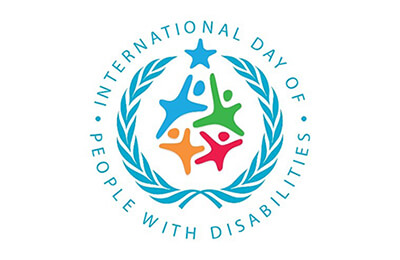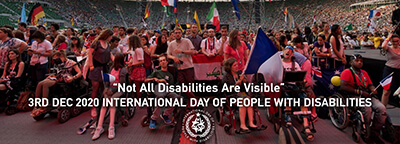"But You Don’t Look Sick…"
 One of the phrases people with invisible disabilities are used to hearing is "But you don't look sick…"
One of the phrases people with invisible disabilities are used to hearing is "But you don't look sick…"
Explaining an invisible disability can be difficult. When someone looks perfectly healthy, it can be hard to understand what they're going through, or that it rises to the level of a diagnosed disability.
Should you tell the boss?
If you have an invisible disability, you may ask yourself if you even need to tell your employer. Disclosing your disability is always your choice. However, if you need to request reasonable accommodations to perform the job, you will need to tell your employer about your disability.
When facing this decision, you may be worried that your employer will view or treat you differently. You may be afraid your boss will think you're unable to do your job or that you've been hiding your disability from him or her. If you're disclosing your disability to request a job accommodation, you should be prepared with ideas that can help you achieve the tasks you're responsible for.
Here are some tips to help you navigate the process:
Submitting your request: Requesting an accommodation isn't always a formal process. Although it's not necessary, the Job Accommodation Network (JAN) recommends submitting your disclosure and request for accommodation in writing to create a record of your request.
Negotiating accommodations: Potential employers and current employers are not required to provide the exact accommodation you request if another option will let you successfully perform a task. For example, if you have a sleep disorder, you may need to request a flexible schedule or ergonomic equipment. However, the employer may propose to provide you with additional breaks instead of a flexible schedule. If an accommodation offered doesn't adequately address your need and you're not sure what you should do, visit the JAN website or give them a call to discuss other ideas and how to move forward.

International Day of People with Disabilities
The United Nations' International Day of Persons with Disabilities on December 3 recognizes the value of inclusion and equality in every aspect of a person's life. The 2020 theme, "Not all Disabilities are Visible," focuses on spreading awareness and understanding of disabilities that are not immediately apparent, such as mental illness, chronic pain or fatigue, sight or hearing impairments, diabetes, brain injuries, neurological disorders, learning differences and cognitive dysfunctions, among others.
Who can help?
Social Security's Ticket to Work (Ticket) Program supports career development for people ages 18 through 64 who receive Social Security disability benefits (SSI or SSDI) and want to work. The Ticket Program is free and voluntary. It helps people with disabilities move toward financial independence and connects them with the services and support they need to succeed in the workforce.
If you participate in the Ticket Program, you will have access to a variety of service providers that can help you decide whether and how to disclose your disability to your employer. One of these service providers is called an Employment Network (EN). ENs are private or public organizations that can help with career counseling and assistance with job placement, including helping you understand how earnings from work will affect your benefits. ENs can also help you request and receive accommodations.
Ticket to Success
The Ticket Program has helped many people with invisible disabilities achieve financial independence through work. They include:
- Hazel: After years of struggling with her mental health and addiction, Hazel found the support she needed to create a path to recovery for herself and work towards her employment goals.
- Shirley: Once Shirley was able to control her narcolepsy and depression, she wasn't sure how to return to work. Now she works full time for her state government.
- Angel: Ticket to Work helped Angel transition to the civilian workforce following a medical retirement from the military due to chronic pain, musculoskeletal injuries and cancer.
If you'd like to get started on your path to financial independence, here's how:
Call the Ticket to Work Help Line at 1-866-968-7842 or 1-866-833-2967 (TTY) Monday through Friday, 8 a.m. to 8 p.m. ET to verify your eligibility. Our customer service representatives will explain how the program works and answer any questions or address any concerns you might have. They will also offer to mail you a list of service providers, or if you prefer, you can use the Find Help tool to get a customized list of providers that are available to help you.
 During International Day of People with Disabilities, we hope you'll pause and think about your path to financial independence with the help of the Ticket Program.
During International Day of People with Disabilities, we hope you'll pause and think about your path to financial independence with the help of the Ticket Program.
Receive Ticket Program Texts
If you're interested in receiving text messages from the Ticket Program, please text TICKET to 1-571-489-5292. Standard messaging rates may apply. We'll send updates from our blog, identify steps on the path to employment and more. We hope you'll find this new way to stay in touch helpful. You can opt out at any time.